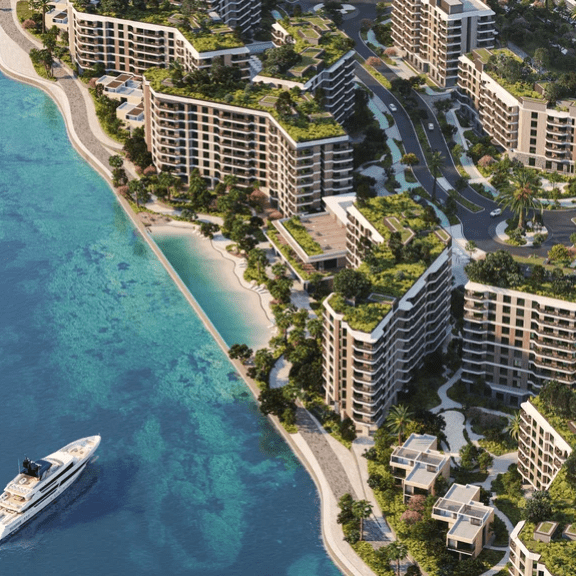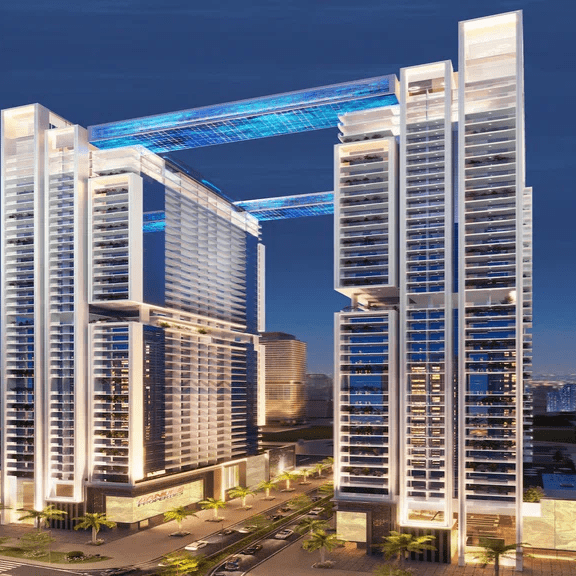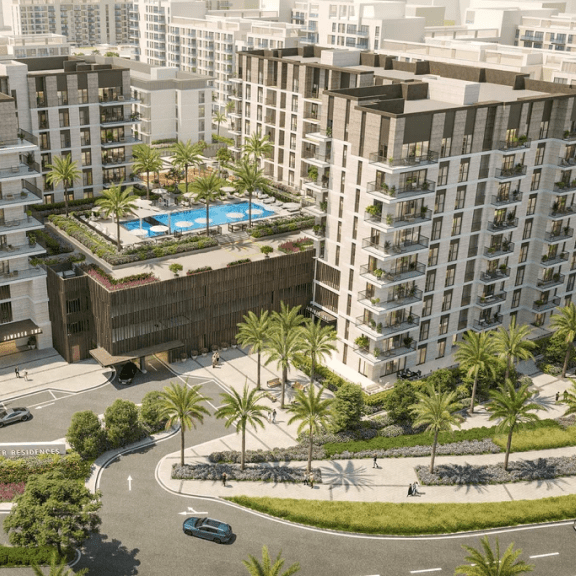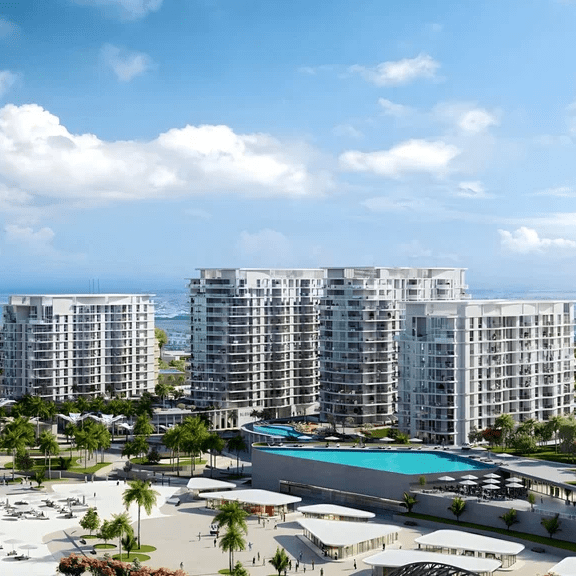On 1 May 2019, a law in the UAE changed foreigners' rules for buying real estate. From that moment on, not only houses but also land became available to them in the investment zones of Abu Dhabi. This was yet another step towards the relaxation of the Emirati rules regulating real estate ownership by citizens of other countries. It is still far from total freedom: foreigners can still own villas and flats only in certain areas that are unavailable in all emirates.
Read on to learn more about the conditions of owning a property in the UAE for foreigners and the main advantages of purchasing Emirati real estate.
- Why Does the UAE Real Estate Market Attract Foreigners?
- What Do Expats Need to Know About the Emirati Real Estate Market?
- Conditions for Owning Emirati Real Estate for Expats
- Specifics of Real Estate Transactions in Different Emiratesх
- How to Conclude a Contract in Dubai?
- How Do You Conclude a Contract in Abu Dhabi
- How to Conclude a Contract in Sharjah?
Why Does the UAE Real Estate Market Attract Foreigners?
The United Arab Emirates is one of the significant points of the global real estate market. The volume of transactions is growing year by year. No wonder this sector is one of the drivers of the local economy, which has long been focused on withdrawal from oil dependence.
A lot of work is being done for this in the UAE. The main measures include:
- Beneficial tax system. Property owners pay tax once after the relevant real estate deal is completed. The rate depends on the emirate. For example, it is 4% in Dubai and 2% in Abu Dhabi. In actual practice, this amount is split equally between the seller and the buyer. Expenses, of course, do not end here; many fees accompany the ownership transfer, but they are all paid only once. There is no annual property tax in the UAE. However, there is a maintenance fee. It varies from $15 to $60 per square metre. This money is used to maintain public areas, make significant repairs, and maintain sports facilities and other infrastructure.
- Improving the level and quality of life. The UAE is renowned for its world-class infrastructure and excellent amenities. Modern transport, first-class healthcare and education, and plenty of recreational options – all ensure the inflow of expats and tourists into the country. As a result, their interest in renting is growing, increasing the profitability of local real estate investments.
- Improving the quality of real estate. Seeking to attract the buyers, the developers are constantly raising the bar. Most properties are delivered completely ready for use. They are also equipped according to the latest technology: many flats look the same as on the pages of design magazines.
- Residence permit. In Dubai, you must buy a property worth 750,000 dirhams ($204,195) or more to obtain a two-year renewable resident status. Real estate worth over 2,000,000 dirhams ($545,000) gives access to a five-year golden visa. If you purchase a property for this price in Abu Dhabi, you will get a ten-year residence permit if you do not sell the property for the first two years of ownership. You can find detailed information about obtaining a residence permit for owning real estate in the General Directorate of Residency and Foreigners Affairs.
Photo: Ondrej Bocek (Unsplash)
What Do Expats Need to Know About the Emirati Real Estate Market?
Investing in Emirati real estate has many benefits. However, this does not mean that housing in the UAE is free-floating and that access to it is unlimited. Despite the size of the market and the signs that the country's government has big plans for this sector, expats still cannot buy houses or flats everywhere.
The thing is that absolute ownership is available only to residents. Citizens of the Gulf countries have slightly fewer rights. For everyone else, there are several legislative restrictions. Thus, in some cases, foreigners can own buildings but not land. In others, they cannot get an entire ownership property. Only in some specific cases, established by law, can non-citizens of the UAE and the Gulf countries purchase real estate based on full ownership.
In this sense, Dubai offered the best conditions for a long time. However, in 2019, the abovementioned amendments brought some balance between Abu Dhabi and Dubai, bringing the current regulations in these emirates to ensure consistency.
Conditions for Owning Emirati Real Estate for Expats
In the UAE, foreigners can own real estate under the following conditions:
- Absolute ownership. This is the right of ownership which includes the ability to hold and dispose of the property freely. It is only available within the so-called freehold investment zones in the UAE.
- Musataha. A musataha agreement entitles the holder to use, construct, and redesign the property within the period specified in the contract.
- Usufruct. This agreement allows you to use the property without altering or redesigning it. The usufructuary must return the property in its original condition except for everyday wear and tear.
- Long-term rental. The parties agree on the terms of ownership and use of the property. The period is at least 25 years.
- Ownership. Foreigners can have property rights to residential property for 99 years. This right applies to the purchased flats and villas, which they can use as they like, but not to the land.
Photo: Jeshoots.com (Unsplash)
Specifics of Real Estate Transactions in Different Emirates
Rules of owning a property vary depending on the emirate.
Abu Dhabi
In Abu Dhabi, all kinds of property rights are available to foreigners:
- Ownership of entire floors or individual flats in the building and villas for 99 years without land rights.
- Extendable musataha for 50 years.
- Usufruct for up to 99 years.
- Long-term rent for at least 25 years.
- Absolute ownership (freehold) in certain investment zones. There are nine of them in Abu Dhabi: Yas Island, Saadiyat, Al Reem, Al Maryah, Lulu, Al Raha Beach, Saih As Sidirah, Al Reef, and Masdar City.
Amendments to the law "On Real Estate" of 2019 stipulate that usufruct or Musataha for more than ten years give their holders the right to use their property as they like, including pledging it, without the landlord's consent. At the same time, the owner cannot enter a pledge agreement without the usufructuary or musataha holder's permission. The parties can always agree otherwise and include the relevant terms in the agreement.
Dubai
In Dubai, foreigners (residents and non-residents) can own property in certain areas on a freehold basis. The list of these areas is much more extensive than in Abu Dhabi. It includes the entire new sector: Palm Jumeirah, Jumeirah Lakes Towers, Emirates Hills, and other world-famous areas. There are already more than 70 freehold zones, and this list is not final.
Other property rights, such as usufruct and lease agreements for up to 99 years, are also available to foreign investors.
Foreigners who do not live in the UAE and expatriate residents can acquire ownership, usufruct, and leasehold rights on equal terms. Title certificates are issued by the Emirates' Dubai Land Department (DLD). There are no age restrictions for owning real estate.
Sharjah
According to the Executive Council Resolution No. 26 of 2014, foreign nationals and companies do not have the right to own real estate. This emirate only has the right to use it for 100 years after registering it in the Sharjah Real Estate Registration Department (SRERD).
However, even such limited ownership rights are not available everywhere. The resolution stipulates explicitly that the usufruct must be located within the territories designated by the authorities of Sharjah.
These are the current conditions for purchasing real estate in 2023. However, it is possible that Sharjah, in line with the neighbouring emirates, will also soften the rules of foreigners' property ownership. For example, Law No. 2/2022, which came into force in 2022, reproduces the old one regarding the application of ownership rights exclusively to citizens of the UAE and the Gulf countries. Still, it also provides some exceptions; ownership may occur in certain areas and projects specifically determined by Sharjah authorities.
Some experts believe this could eventually grant property rights to foreign citizens within the same investment zones. However, for now, these are just expectations and forecasts.
Other Emirates
Regarding the UAE real estate market, we usually talk about Dubai, Abu Dhabi, and Sharjah since they are three of the country's most popular regions. However, limiting the purchase options only to them is not right. The fast-growing markets of other emirates also have their advantages:
- Ajman is the smallest region, but it is still highly promising. Of course, foreigners have few opportunities because Gulf citizens cannot buy real estate in all areas. Only locals can own houses and flats in Meshairef, Al Hamidiyah, and Al Jurf. As for property rights for expats, they can buy properties in freehold zones. Real estate transactions are registered with the Department of Land and Properties (DLP).
- Ras Al Khaimah. Generally, absolute ownership is not allowed for foreigners in this emirate. Freehold zones are again the exception. There are four of them: Mina Al Arab, Al Jazirah Al Hamra, Al Jarafat of Al Muairidh, and Al Koof of Al Dhait South. Transactions are concluded at the local Land Department.
- Fujairah. Absolute property ownership rights for foreigners in this emirate are currently under discussion. An exception is only made for some properties, such as those in Al Jaber Tower. In other cases, property is available to non-citizens of the UAE or the Gulf countries only on a rental basis.
- Umm Al Quwain. Here, expats and non-GCC nationals can own property (but not the land) in designated investment areas on a leasehold basis for up to 99 years.




